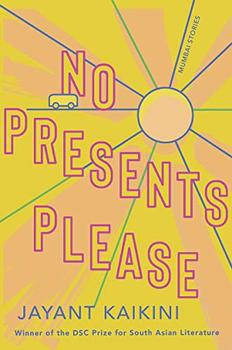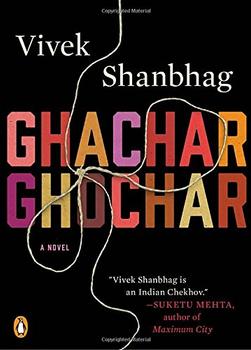Summary | Excerpt | Reviews | Beyond the book | Read-Alikes | Genres & Themes | Author Bio

Ambitious, rich, and compassionate, The Lives of Others is a novel of unflinching power and emotional force which anatomizes the soul of a nation as it unfolds a family's history.
The aging patriarch and matriarch of the Ghosh family preside over their large household, made up of their five adult children and their respective children, unaware that beneath the barely ruffled surface of their lives the sands are shifting. Each set of family members occupies a floor of the home, in accordance to their standing within the family. Poisonous rivalries between sisters-in-law, destructive secrets, and the implosion of the family business threaten to unravel bonds of kinship as social unrest brews in greater Indian society. This is a moment of turbulence, of inevitable and unstoppable change: the chasm between the generations, and between those who have and those who have not, has never been wider. The eldest grandchild, Supratik, compelled by his idealism, becomes dangerously involved in extremist political activism—an action that further catalyzes the decay of the Ghosh home.
Ambitious, rich, and compassionate, The Lives of Others anatomizes the soul of a nation as it unfolds a family history, at the same time as it questions the nature of political action and the limits of empathy. It is a novel of unflinching power and emotional force.
Claiming that you can't be an Indian writer without politics somehow seeping into your work, Neel Mukherjee makes no bones about his novel, The Lives Of Others, being a deeply political animal. Mukherjee expertly fuses his political ambitions into his narrative plots. While Supratik’s story carries its agenda overtly, the story of the Ghoshes also serves to reinforce Mukherjee's belief that the family is the primary unit of exploitation...continued
Full Review
(894 words)
This review is available to non-members for a limited time. For full access,
become a member today.
(Reviewed by Poornima Apte).
The Lives of Others begins with a shocking murder suicide. A farmer, Nitai Das, kills his children and wife and then himself, out of sheer desperation resulting from abject poverty and hunger. The book's protagonist, Supratik Ghosh, decides to move to rural West Bengal, to help the plight of farmers caught in an endless cycle of debt and poverty.
 While farming is an occupation where the suicide rate is already high, it is especially so in India. Between 2001 and 2011, a yearly average of 16,743 deaths by suicide were recorded in farming communities.
While farming is an occupation where the suicide rate is already high, it is especially so in India. Between 2001 and 2011, a yearly average of 16,743 deaths by suicide were recorded in farming communities.
Many factors, some broad and others specific, have been labeled as contributing to this epidemic. The liberalization of the Indian economy in the '90s lead to the country's booming ...
This "beyond the book" feature is available to non-members for a limited time. Join today for full access.

If you liked The Lives of Others, try these:

by Jayant Kaikini
Published 2020
For readers of Jhumpa Lahiri and Rohinton Mistry, as well as Lorrie Moore and George Saunders, here are stories on the pathos and comedy of small-town migrants struggling to build a life in the big city, with the dream world of Bollywood never far away.

by Vivek Shanbhag
Published 2017
For readers of Akhil Sharma, Mohsin Hamid, and Teju Cole, a haunting, masterly novel about a family splintered by success in rapidly changing India.